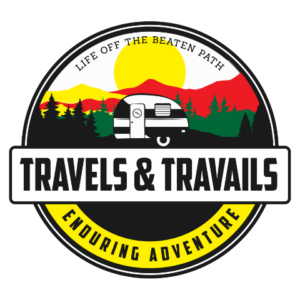Boondocking, or camping in remote areas without designated campsites or hookups, can be a great way to experience the outdoors and escape the crowds. However, when camping alone, safety is paramount. That’s why you’re probably asking yourself if it’s safe to boondock alone.
If you follow some safety tips, boondocking alone is relatively safe. Here are those tips:
- Choose a safe location
- Let someone know your plans
- Stay aware of your surroundings
- Bring safety gear
- Know basic self-defense
- Practice fire safety
- Stay low-profile
- Bring enough supplies
- Research the area
- Park strategically
- Bring a dog
- Keep your campsite Clean
- Have a plan for emergencies
- Trust your instincts
Read on for some boondocking safety tips for camping alone.

Let someone Know Your Boondocking Plans
Before heading out, ensure someone knows where you’re going and when you plan to return. This way, someone will know where to start looking for you if something goes wrong.
We write out our whole itinerary and give one copy to our daughter and one to my sister. That way, someone will come looking for us if we don’t come back on time or check in.
I don’t know if you’ve ever seen the movie 127 hours, where the hiker gets his arm pinned between rocks. It’s a true story. Aron Ralston went on a hike and didn’t tell anyone where he was going. He lived, but some people don’t.
This is something that you should do on a routine basis. But it’s even more critical if you are boondocking solo.
Choose a Safe Boondocking Location
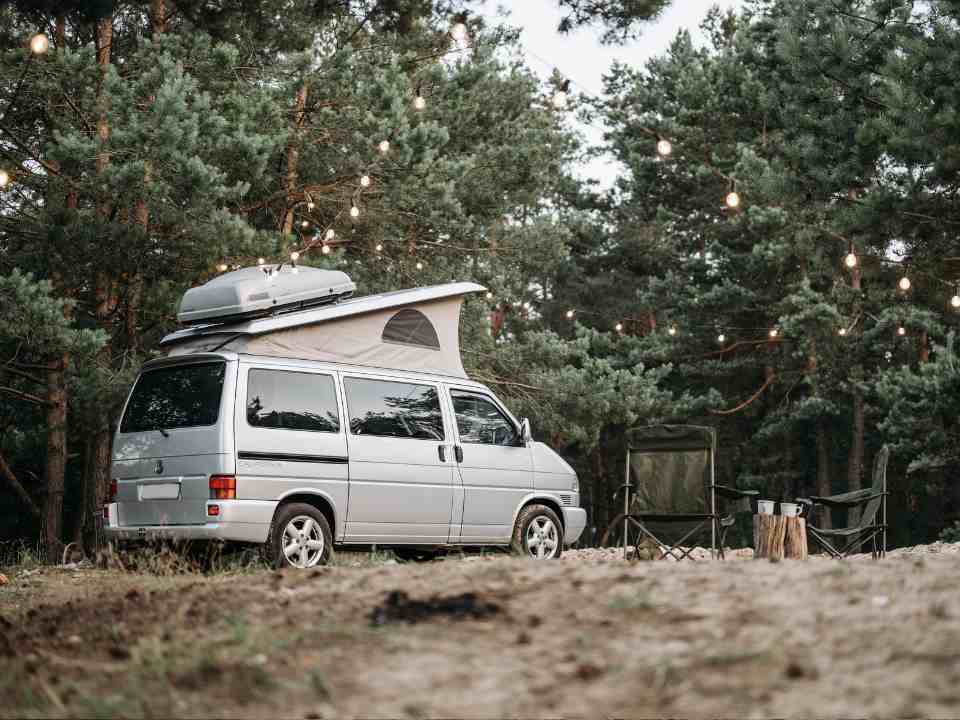
When boondocking, choose a safe location to camp. Look for well-lit areas with good visibility and far away from potential hazards like cliffs, rivers, or other dangers.
When scouting a potential boondocking location, look for signs of recent activity, such as tire tracks, fire rings, or trash. These signs can indicate that the site is safe and regularly used by other campers.
Make sure that your campsite is free of “widow makers.” A widowmaker is a detached or broken tree limb or tree top. It can also be a tree that is ready to blow over. Inspect your campsite by looking up at the trees. If you see broken limbs, burned trees, or trees that are leaning excessively, find another campsite.
Stay Aware of Your Surroundings
Always be aware of your surroundings, especially when camping alone. Take note of any unusual activity or people in the area, and trust your instincts if something seems off.
Avoid distractions such as using your phone or listening to music, making you less aware of your surroundings. Stay focused on your environment and any potential hazards.
Take note of people, vehicles, and other objects in your vicinity. Look for anything that seems out of place or suspicious. Pay attention to sounds in your environment, such as footsteps or approaching vehicles. These can alert you to potential dangers.
Observe the body language of people around you, looking for signs of aggression, tension, or anxiety.
Bring Camping Safety Gear
Bring safety gear with you, such as a first aid kit, a fire extinguisher, a whistle, and a flashlight. Also, make sure you have a charged cell phone or satellite phone in case of emergencies.
Know Basic Self-defense

It’s always a good idea to know basic self-defense techniques in case of an emergency. Consider taking a self-defense class before heading out on your boondocking trip.
Self-defense classes teach practical skills for staying safe, including physical techniques for defending yourself and avoiding dangerous situations. Knowing how to defend yourself can help boost your confidence and reduce anxiety about potential dangers.
Self-defense classes can help you develop greater awareness of your surroundings and potential risks, which can help you avoid dangerous situations.
A Word About Weapons
When it comes to weapons, it’s important to understand that laws and regulations regarding the possession and use of firearms vary widely depending on your location. It’s crucial to research and complies with all local, state, and federal laws before obtaining or carrying any weapon.
Additionally, carrying a weapon for self-defense is a serious responsibility that requires proper training and education. It’s important to seek out professional instruction on how to safely and effectively use any weapon you choose to carry.
Consider Non-lethal Weapons
Non-lethal weapons are a good option when boondocking alone.
Pepper spray is a non-lethal self-defense tool that can incapacitate an attacker. It’s a chemical irritant designed to cause temporary blindness, respiratory distress, and intense burning sensations on the skin and eyes.
Air horns can help deter an attacker and alter others. The loud noise can be heard from a distance, potentially scaring them away.
Stun guns can be an effective non-lethal self-defense tool in certain situations. Still, their effectiveness depends on several factors, including the strength of the stun gun, the location and duration of the shock, and the size and strength of the attacker.
It’s also important to note that stun guns are illegal in all locations, and some jurisdictions may restrict their use or require a license or permit to carry one. When acquiring a stun gun, it’s important to have the appropriate training.
Practice Fire Safety
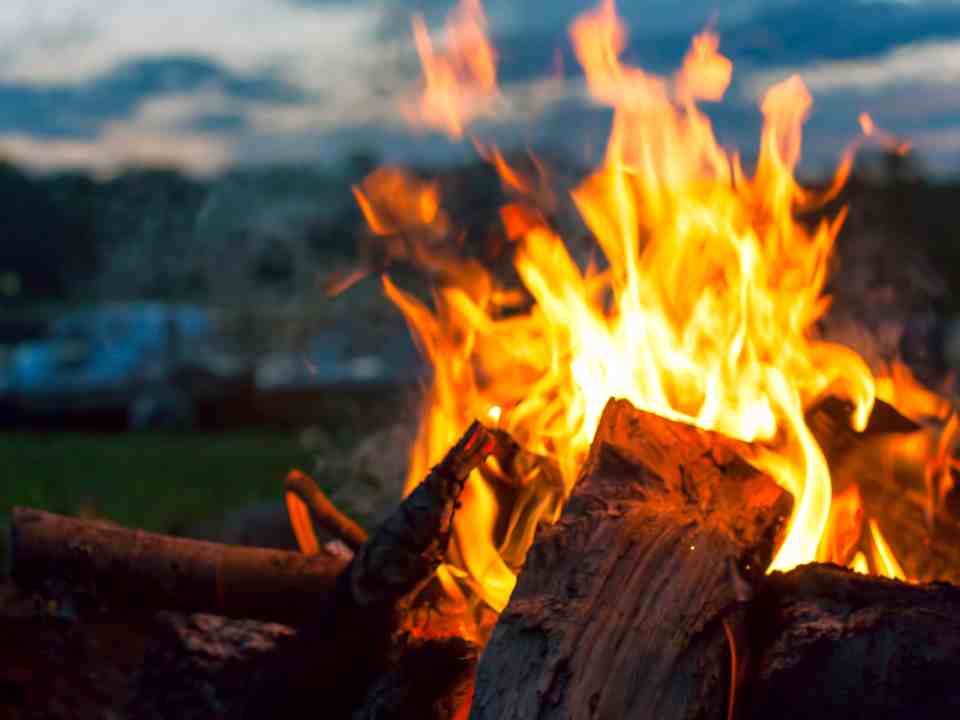
When camping alone, it’s important to be extra cautious with fire. Make sure to follow fire safety guidelines and never leave a fire unattended.
We nearly lost our home two years ago because someone in the national forest was careless. Check to make sure that fires are allowed where you plan to camp. If necessary, obtain a fire permit. If campfires are not allowed in your camping area, consider purchasing a propane fire pit. Following these practices can save your life and the lives of others.
Stay Low-profile When Boondocking
When camping alone, it’s best to stay low-profile. Avoid drawing attention to yourself and your campsite by keeping noise levels down and not advertising that you’re camping alone.
Avoid littering, stay on established trails, and follow Leave No Trace principles.
Keep noise to a minimum. Avoid loud music, generators, and other loud equipment that would call attention to yourself.
When choosing a campsite, look for a location that is out of sight and away from heavily traveled roads.
Bring Enough Camping Supplies
When camping alone, it’s important to bring enough supplies to last you for the duration of your trip. This includes food, water, and other necessities like medication or toiletries.
Research the Area
Before heading out to a boondocking location, do your research. Find out about the area’s wildlife, weather patterns, and potential hazards. This can help you better prepare for your trip.
When camping in bear or predator country, it’s important to take precautions to avoid dangerous encounters. One option is to carry non-lethal weapons that can deter bears and other predators without causing them serious harm.
Bear spray is a pepper spray designed specifically for use against bears. It creates a cloud of irritants that can cause the bear to retreat. Bear spray is a safe and effective way to deter bears without causing permanent harm.
Air horns can be effective at scaring away bears and other predators. They are loud and can be heard from a distance, which can help deter animals before they get too close.
A whistle can be a simple and effective tool for scaring away predators. If you encounter a predator, blow the whistle loudly and repeatedly to try and scare them away.
A stun gun is a non-lethal weapon that can temporarily incapacitate a predator. However, it’s important to note that stun guns may not be effective against larger predators like bears.
Park Strategically at Your Boondocking Location
When setting up your campsite, park your vehicle in a strategic location that provides both privacy and quick escape options in an emergency. Try to park in a spot that is not easily visible from the road or trail.
Position your vehicle to provide a barrier between you and potential threats, such as wild animals or other campers. Avoid parking too close to heavily traveled roads or popular recreational areas, as this can increase your risk of theft or unwanted attention.
If possible, park your vehicle near natural barriers such as trees, rocks, or other vegetation to provide additional protection and privacy.
In case of an emergency, it’s important to have a quick and easy exit strategy. Make sure you park in a way that allows for a quick and easy exit and keep your vehicle or RV in good condition to ensure that it is always ready to go. If you have a travel trailer, keep it hitched to your tow vehicle.
Also, Consider sleeping in your vehicle. If you sleep in your vehicle and have a problem, you can get in the passenger seat and drive out.
Bring a Dog Boondocking

Bringing a dog with you when boondocking can offer many benefits, including companionship and security. Even a small dog can give an alert in case of danger, while a larger dog will act as a deterrent.
Before heading out, research the area you plan to camp in to ensure that dogs are allowed and that there are no restrictions or regulations you need to be aware of.
Make sure your dog is well-trained and socialized before taking them boondocking. This will help ensure that they are well-behaved and don’t pose a risk to wildlife or other campers.
Bring plenty of food, water, and necessary medications or first aid supplies for your dog. Bring a sturdy leash, collar, crate, or other secure confinement options.
To ensure your dog’s safety, always keep them on a leash. This will also help prevent them from wandering off and getting lost.
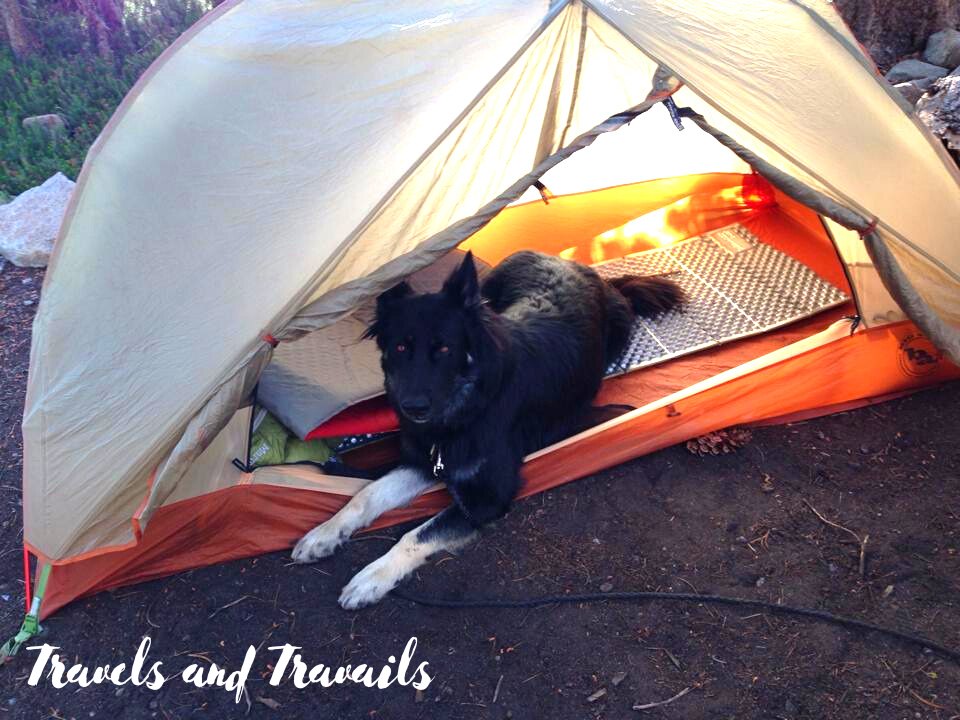
Please keep your dog away from wildlife, and never let them chase or harass animals. This can pose a danger to both your dog and the wildlife.
Always clean up after your dog and properly dispose of their waste to help keep the area clean and sanitary for other campers.
Keep Your Campsite Clean
Keeping a clean campsite can help deter wildlife and prevent accidents. Store your food properly, dispose of trash in designated areas, and clean your cooking area.
Have a Plan for Emergencies
Always have a plan in case of emergencies, such as getting lost, injured, or encountering dangerous wildlife. Make sure to bring a map, compass, or GPS device, and know how to use them.
Invest in a satellite communicator device. The SOS capability of a satellite communicator device is a critical feature that can be used in emergency situations.
In an emergency, the user can activate the SOS button on the device, which sends a distress signal with their GPS location to a 24/7 monitoring center. This monitoring center will then coordinate with local emergency responders to initiate a rescue or evacuation.
If you plan to boondock alone frequently, a satellite communicator device is a worthwhile investment. We always carry our Garmin InReach Mini.
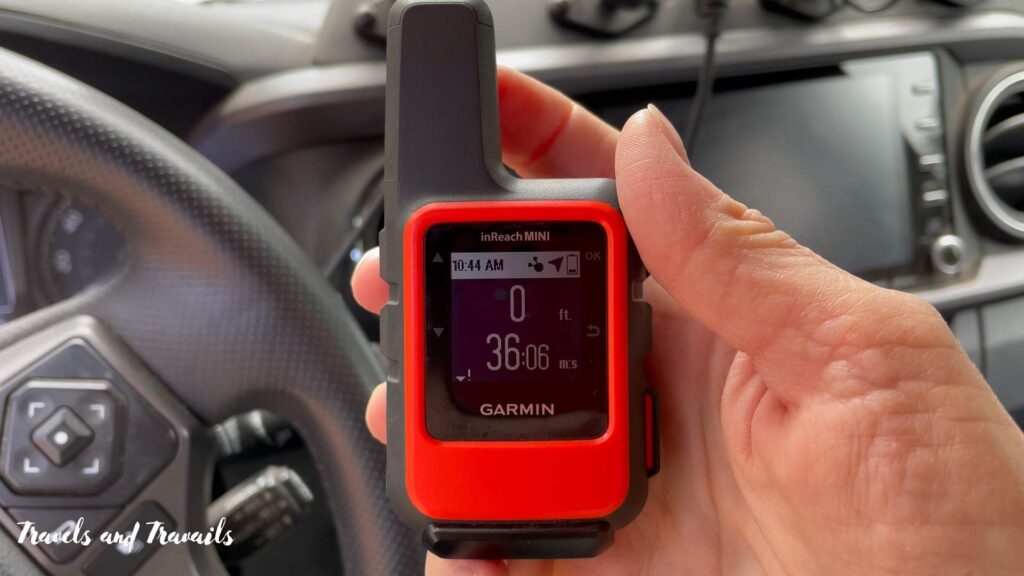
Except for one time… We were boondocking, and I went hiking on my own. I had everything in my pack except the Garmin InReach. Long story short, I got lost. I ran into other people on the trail who helped me get back, but it was a temporary touch-and-go situation. Fortunately, my husband knew where I was headed. Still, I wish I had taken the InReach.
If you have the new iPhone 14, you can already access an SOS device.
Trust Your Instincts
Trust your instincts and leave the area if something doesn’t feel right. It’s better to be safe than sorry when camping alone in a remote location.
Conclusion
Boondocking can be an exciting and rewarding way to experience the great outdoors. However, taking the necessary precautions to ensure your safety and security while camping alone or with others is important. By following the tips outlined above, such as choosing a safe location, being aware of your surroundings, and bringing the right gear, you can enjoy all the benefits of boondocking while minimizing potential risks.
